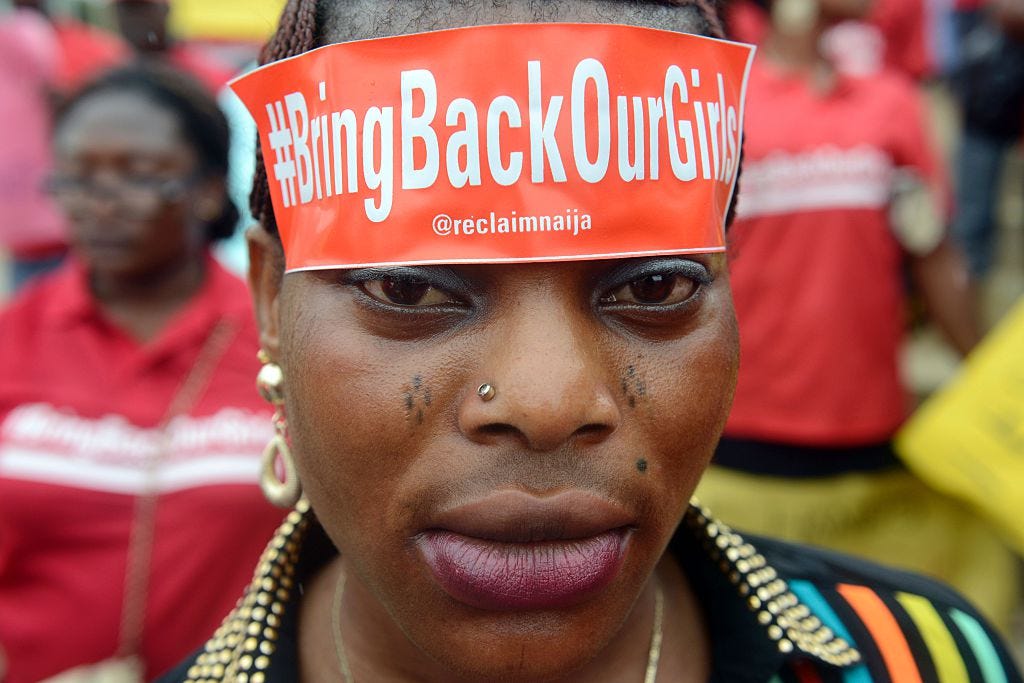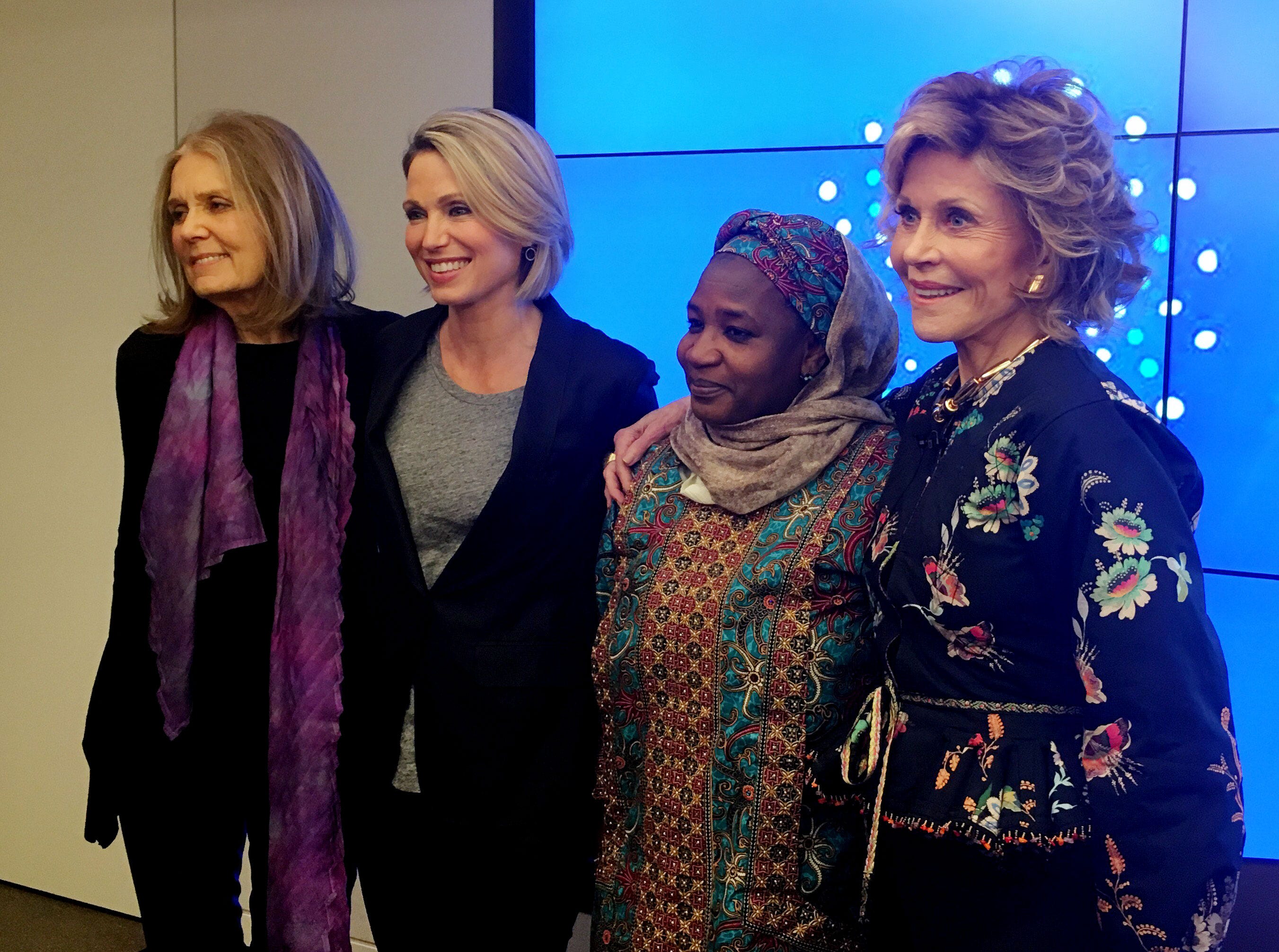Featured Post
- Get link
- X
- Other Apps
Saudatu Mahdi, a woman's rights leader in Nigeria, said the work is only just beginning.

They were taken in the middle of the night, from a place where they should've felt the safest. On April 14, 2014, terrorist group Boko Haram kidnapped 276 schoolgirls from the town of Chibok, in Nigeria, and carted them away to a location believed to be the Boko Haram headquarters in Nigeria's Sambisa Forest. In the nearly two years since, 57 girls have escaped, and another 21 were recently freed after negotiations between Boko Haram and the Nigerian government. Still, an estimated 197 girls are still missing from their families.
Global outrage ensued after news broke of the Boko Haram kidnapping in Chibok. A social media movement called Bring Back Our Girls was started. Malala Yousafzai wrote an open letter to the missing girls, and brought reignited fervor to the fight to bring the girls home.
At a panel hosted by Donor Direct Action in New York City on Thursday night, Saudatu Mahdi, a woman's rights leader with the Women’s Rights Advancement and Protection Alternative in Nigeria, spoke on the status of the missing Chibok girls, and how much is left to be done to bring them home safely. "The work has just started," Mahdi said.



Photo Credit: Getty
They were taken in the middle of the night, from a place where they should've felt the safest. On April 14, 2014, terrorist group Boko Haram kidnapped 276 schoolgirls from the town of Chibok, in Nigeria, and carted them away to a location believed to be the Boko Haram headquarters in Nigeria's Sambisa Forest. In the nearly two years since, 57 girls have escaped, and another 21 were recently freed after negotiations between Boko Haram and the Nigerian government. Still, an estimated 197 girls are still missing from their families.
Global outrage ensued after news broke of the Boko Haram kidnapping in Chibok. A social media movement called Bring Back Our Girls was started. Malala Yousafzai wrote an open letter to the missing girls, and brought reignited fervor to the fight to bring the girls home.
At a panel hosted by Donor Direct Action in New York City on Thursday night, Saudatu Mahdi, a woman's rights leader with the Women’s Rights Advancement and Protection Alternative in Nigeria, spoke on the status of the missing Chibok girls, and how much is left to be done to bring them home safely. "The work has just started," Mahdi said.

Photo Credit: HANNAH SMOTHERS
Mahdi is grateful for those girls who have been released, and are living free again. Some are now enrolled at new schools around the country, others are living in the United States and going to school in Oregon. But Mahdi said this isn't the case for everyone — many of these girls are back living in Chibok, "the very place where they were desecrated."
"These are the very poor ones," Mahdi said. "The ones who have nobody outside of the Chibok environment, and they've had to live with stigmatization. They've had to live with everything that dehumanizes."
Aside from working to have all the girls released, Mahdi said it's incredibly difficult to help these young women transition to normal life after living in insurgency for so long. Mahdi said many of them are being chastised and bullied by their communities — upon their return, they're called names like "Boko Haram wives" and "Boko Haram mothers." She emphasized the importance of treating these young women with respect and seeing them as survivors, rather than victims.
"With these girls, we have seen hope, we can build on hope," she explained. "With those of them that have come back, there is work to be done. How much work? I can't tell you. It's so much work to reconstruct the psyche of someone who has been through what these girls have been."
Mahdi hopes that the recent release of the 21 girls will lead to better negotiations between the Nigerian government and Boko Haram, and could lead to the release of not only the remaining girls, but of all other men and women who have been taken by Boko Haram — a figure estimated by human rights groups to be somewhere around 2,000 people since 2009.
"I once was privileged to see a lamb looking for a lost ewe," Mahdi said. "And whenever I remember that image, I just shudder at what is going on in the minds of the mothers and the fathers of these girls."
Source: Hannah Smothers - Cosmopolitan
Follow Hannah on Twitter.
Mahdi is grateful for those girls who have been released, and are living free again. Some are now enrolled at new schools around the country, others are living in the United States and going to school in Oregon. But Mahdi said this isn't the case for everyone — many of these girls are back living in Chibok, "the very place where they were desecrated."
"These are the very poor ones," Mahdi said. "The ones who have nobody outside of the Chibok environment, and they've had to live with stigmatization. They've had to live with everything that dehumanizes."
Aside from working to have all the girls released, Mahdi said it's incredibly difficult to help these young women transition to normal life after living in insurgency for so long. Mahdi said many of them are being chastised and bullied by their communities — upon their return, they're called names like "Boko Haram wives" and "Boko Haram mothers." She emphasized the importance of treating these young women with respect and seeing them as survivors, rather than victims.
"With these girls, we have seen hope, we can build on hope," she explained. "With those of them that have come back, there is work to be done. How much work? I can't tell you. It's so much work to reconstruct the psyche of someone who has been through what these girls have been."
Mahdi hopes that the recent release of the 21 girls will lead to better negotiations between the Nigerian government and Boko Haram, and could lead to the release of not only the remaining girls, but of all other men and women who have been taken by Boko Haram — a figure estimated by human rights groups to be somewhere around 2,000 people since 2009.
"I once was privileged to see a lamb looking for a lost ewe," Mahdi said. "And whenever I remember that image, I just shudder at what is going on in the minds of the mothers and the fathers of these girls."
Source: Hannah Smothers - Cosmopolitan
Follow Hannah on Twitter.
Comments